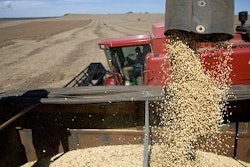Legislation to create a label for foods and feed free of genetically modified organisms (GMOs) is being revisited in the U.S. House of Representatives.
The idea is part of an attempt to block mandatory labeling of foods that include genetically modified organisms, or GMOs. The certification would be voluntary, said Rep. Mike Pompeo, R-Kansas, who is including the idea in legislation he is introducing. Pompeo during the previous session was a co-sponsor of the Safe and Accurate Food Labeling Act, which was proposed but never made it through the legislative process.
Pompeo said a government-certified label would allow companies that want to advertise their foods and feed as GMO-free to do so, but it would not be mandatory for others, according to an Associated Press report on the NewsOK website. The food industry, which backs Pompeo’s bill, has strongly opposed individual state efforts to require labeling, saying labels would be misleading because GMOs are safe. The bill would also override any state laws that require the labeling.
Under the legislation, the USDA would oversee the certification, as it does with organic foods. But while organic foods must be USDA-certified to carry any organic label on a package, the USDA non-GMO certification would not be required for every food that bills itself as non-GMO. The idea is that the USDA-certified non-GMO foods would have a special government label that companies could use to market their foods. The bill also steps up FDA review of genetically modified foods.
Pompeo said inconsistent state laws would be confusing and costly for consumers and for companies. Vermont became the first state to require the labeling in 2014, and that will go into effect next year if it survives a legal challenge from the food industry.
Pompeo is working with his party’s leadership and also the Senate to try to pass the bill this year.
Genetically modified seeds are engineered in laboratories to have certain traits, like resistance to herbicides. The majority of the country’s corn and soybean crop is now genetically modified, with much of that going to animal feed. They are also made into popular processed food ingredients like high-fructose corn syrup and soybean oil.
The FDA says GMOs on the market now are safe, but consumer advocates pushing for the labeling say shoppers have a right to know what is in their food, arguing that not enough is known about the effects of the technology.










